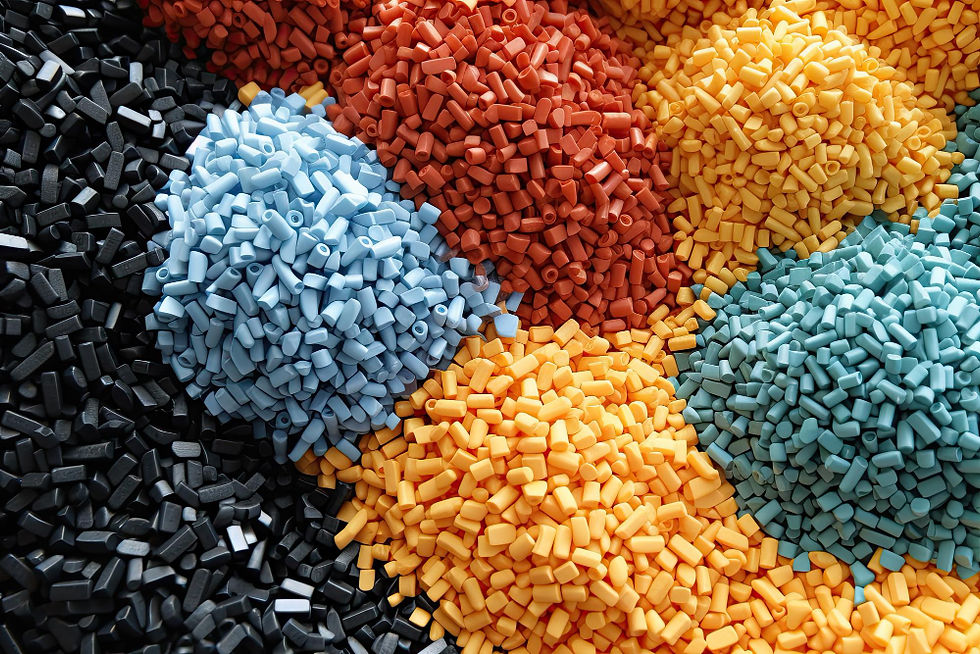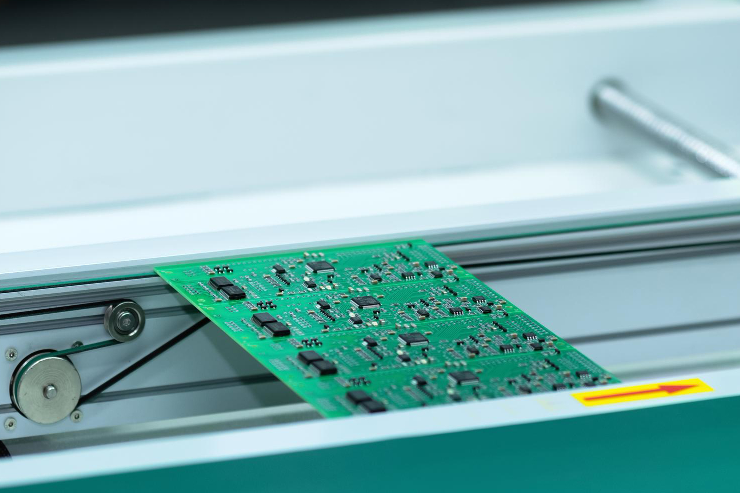How The Future of Automation is Transforming Injection Moulding and the Manufacturing Process
- Nov 10, 2025
- 3 min read
Updated: Nov 11, 2025

Automation is reshaping industries across the world and plastic injection moulding is no exception. From robotics and AI-driven monitoring systems to fully automated production lines, technology is making the manufacturing process faster, smarter and more efficient than ever before.
At Amey Plastics, we’re continuously investing in innovation to improve quality, consistency and productivity for our customers. In this blog, the Amey Plastics team explore how automation is transforming the injection moulding industry and what it means for the future of manufacturing.
1. What Does Automation Mean in Injection Moulding?
In injection moulding, automation involves using machines, robotics and smart technologies to perform tasks traditionally carried out by people, such as loading moulds, removing parts, inspecting components or assembling products.
For us though, modern automation doesn’t mean replacing human expertise, we see it as enhancing it. By taking over repetitive or precision-based processes, automated systems allow our skilled technicians to focus on quality control, optimisation and innovation.
2. Improved Efficiency and Productivity
One of the biggest benefits of automation is increased production efficiency. Automated systems can run continuously with minimal downtime, improving output and consistency.
Key benefits can include:
Faster cycle times
Reduced human error
Greater repeatability and precision
Lower operational costs over time
With machines running efficiently and predictably, manufacturers can meet high-volume demands without compromising quality.
3. Enhanced Quality Control
Automation allows manufacturers to integrate real-time monitoring and inspection systems directly into the moulding process. Sensors and vision systems can detect even the smallest variations in pressure, temperature or part geometry, alerting operators before issues become costly defects.
This shift towards data-driven production means quality assurance happens at every stage, not just at the end of the line. It helps reduce waste, save material and ensure every part meets the required specification.
4. Greater Safety and Workplace Efficiency
Automated systems also make workplaces safer by reducing direct human involvement in high-temperature or high-pressure environments. Robots can safely handle tasks like part removal, trimming or stacking, minimising the risk of operator injury while improving overall workflow efficiency.
This creates a cleaner, more organised production environment where teams can focus on supervision, programming and maintenance rather than manual handling.
5. Data, Connectivity and Smart Manufacturing
The next evolution of automation lies in smart manufacturing, where machines are connected through the Internet of Things (IoT) and data analytics.
By collecting and analysing production data in real time, manufacturers can:
Predict maintenance needs before breakdowns occur
Track performance trends to optimise efficiency
Reduce downtime and energy consumption
With this level of connectivity, manufacturers can deliver consistent quality and improved traceability; key benefits for customers seeking reliable production.
6. Automation and Sustainability
Automation also supports sustainability in manufacturing. By precisely controlling material use, cycle times and energy consumption, automated systems help reduce waste and environmental impact.
Additionally, automated monitoring ensures minimal rejects, lower scrap rates and more efficient use of recycled or biodegradable materials. The result is a process that’s not only smarter, but greener too.
7. The Role of People in an Automated Future
Despite technological advances, we believe people remain central to the injection moulding process. Automation handles the repetitive tasks, but skilled engineers, designers and technicians bring the insight and experience needed to refine production, troubleshoot challenges and develop innovative products.
At Amey Plastics, we view automation as a partnership between technology and expertise, where human creativity and precision engineering are supported by the latest manufacturing tools.
Shaping the Future of Manufacturing
Automation is no longer a glimpse of the future, it’s here today, transforming how plastic components are made. From real-time quality monitoring to smarter, more sustainable processes, it will help manufacturers like Amey Plastics deliver exceptional results with greater speed, accuracy and consistency.
Looking for a forward-thinking UK-based manufacturing partner?Contact the Amey Plastics team today on 01730 266 525 or email sales@ameyplasticsltd.co.uk to discuss your project.






Comments